24. The Counterfeiters (2007)
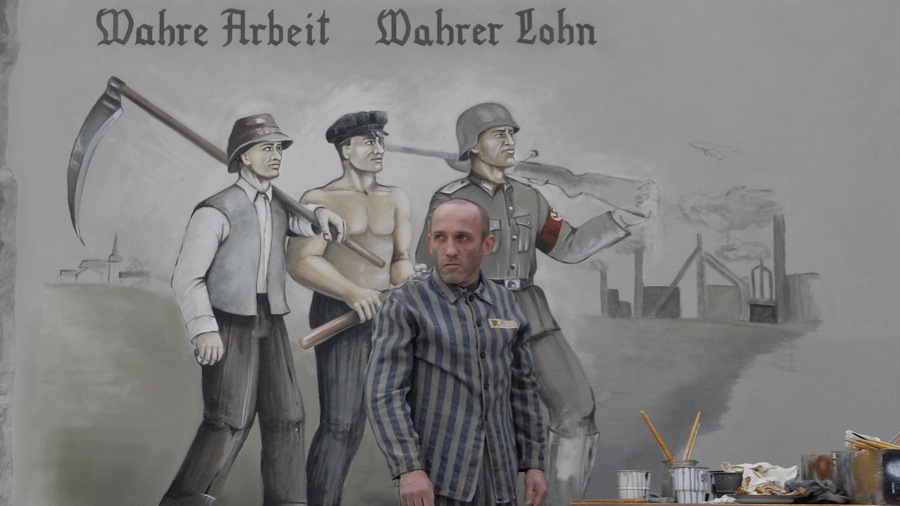
Some films seem to come from virtually nowhere. This Austrian-German production surprised many by flying under the radar to win the Best Foreign Film Academy Award. Its director, Stefan Ruzowitsky, had never had a major success before, or since, but this film was a deserving one-shot, if nothing else. Once more, Germany was able to create a film based on a story from the World War II years.
Aside from the bombings and other overt acts of warfare the Germans visited on the British, there was also a plot to flood with the British economy with counterfeit money and bring it to ruin. The lynchpin of this plot was the masterfully created fake currency. The jaw dropper is that the criminal artist was Salomon Sorowitsch, a Jewish forger who was then incarcerated in a German concentration camp! Unsurprisingly, he was going along with the plot as a desperate means of survival.
While working this bleak system, he starts to consider how this situation could help to save others in the camp but finds the situation complicated indeed. Enacted by an expert German cast headed by Karl Markovics and Devid Streisow, the film won many German awards in addition to its recognition from the Academy, showing that German was making peace with its past and able to analyze the events of those times.
25. Atonement (2007)

British author Ian McEwan’s much acclaimed 2001 novel concerning memory, guilt and redemption was considered for filming virtually from the time of publication but many wondered if the cerebral work could be rendered correctly on film. Happily, the team of director Joe Wright and playwright-screenwriter Christopher Hampton (an Oscar winner going in) proved to be up to the task. The story opens shortly before World War II.
On the estate of an upper class family named Tallis, precocious 13 year old Briony (stunning newcomer Saorise Rowan, later Romola Gari and, later still, the great Vanessa Redgrave) becomes the key witness to a supposed crime which involves a man named Robbie Turner (James McEvoy), who is the son of a long time family servant. Briony has a crush on Robbie but, earlier on that fateful day of the crime, had discovered he was in love with her older sister Cecillia (Kiera Knightly). This leads her to commit a cruel and morally suspect act which will shatter more than one life and lead to irrevocable consequences.
The acting in the film was judged to be one of the best of its year, though the only performer singled out by the Academy was Miss Rowan, whose unforgettable debut presaged her successful adult career (and Miss Redgrave’s cameo as the senior version of the character was also a highlight). Miss Knightly had previously had a great hit with the director in a much lauded version of Pride and Prejudice in 2002, though her work here may be even better than her Oscar nominated performance in that film.
Mr. McEvoy was given a major career boost by his stellar work. With its rich evocation of Britain just before and during World War II, its adept script which captures so much of its transcendent source and which gave its talented cast such a fine showcase and adroit direction, Atonement was a model of literary adaptation.
26. Katyn (2007)
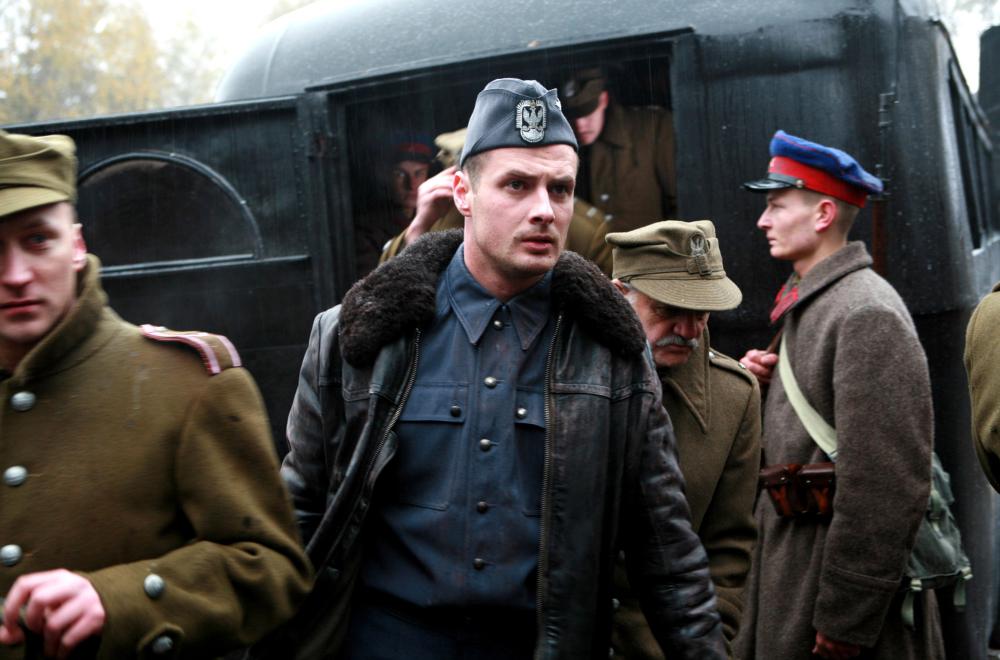
Andre Wadja had long, long been a staple of Polish, European, and international arthouse culture, including being the recipient of an honorary Academy Award in 2000. However, that honor did not signal the end of his creative days by any means.
In fact, the fall of the Iron Curtin gave him a new creative wind and allowed him to create what may turn out to be his last masterpiece. In 1940 the invading Soviet troups, for reasons which still remain obscure, massacred a large number of civilians in the forest of Katyn, along with many Polish officers and soldiers who were POWs. The toll was estimated to be 22,000. This episode is little known outside of Europe mainly because it has always been a political hot potato.
When the Germans invaded Poland a short time later they used the incident as propaganda against the Soviets. When the war was over with the Soviets emerging among the victors, they claimed that the incident was largely invented by the Germans, though evidence indicated this was not so. After the political change of the late 20th Century, Wadja was determined to tell the story. The result was powerful, to say the least.
The period detail was flawless, the script complex and dense as told from the point of view of the women who survived the victims, the acting by a large ensemble superb. However, memories can die hard and the resulting film was a hot potato of its own within Poland during an election year and, understandably, raised Soviet ire (and Chinese ire as well for its philosophy). However, it also landed Wadja his fourth and, to date, final Academy nomination for Best Foreign Film, a fitting cap to a great career.
27. Revanche (2008)
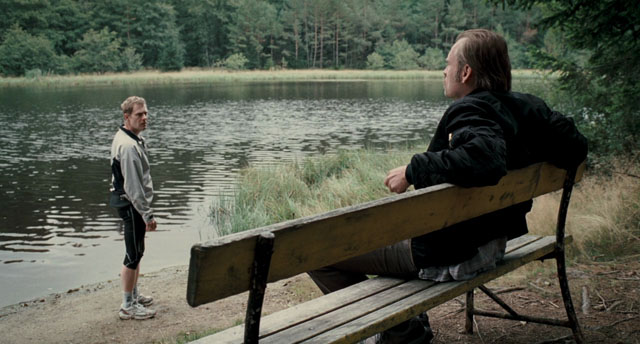
Austria has often been seen as an adjunct to Germany in terms of film history but several notable cinematic figures have emerged from that lovely country.
One of the latest is director Gotz Spielmann, mainly, to date, due to this contemplation on crime and the gulit and misery which stem from lawlessness. Ex-con Alex (Johannes Kirisch) is attracted to loyal Tamara (Irina Potapenko), a prostitute in the brothel which employs him. He takes her along needlessly on a bank robbery job, which ends with her death due to police gunfire.
The shooter was Robert (Andreas Lust), who is involved in a troubled marriage with Susanne (Ursula Strauss), which is troubled mostly to the childlessness caused by Robert’s unacknowledged fertility problems. By sheer coincidence, Alex crosses paths with the couple and a tangle of grief, guilt, blame and emotional transference leading to some form of redemption for the characters.
The deft handling of the characters and themes made the film a hit with audiences and critics. The reception in Europe was excellent but that was dwarfed by the welcome the film received in the US. Its subsequent Academy nomination in a very crowded year in the Best Foreign Film category was a triumph, even though it was not the ultimate winner. Spielmann has only directed one film since but hope is still high that this film is the harbinger of a potentially great career.
28. Antichrist (2009)

Lars Von Trier strikes again! It was only a matter of time before the king of high-toned arthouse offensiveness took on religion and it finally arrived in the form of Antichrist. It did not disappoint those looking to be offended. Actually the film is a horror film with religious overtones and lots and lots of sex, especially of the sadomasochistic variety.
English speaking actors Willem Defoe and Charlottes Gainsbourg are featured as a couple whose child dies while they are busy having sex. They then move to a cabin deep in the woods, where the husband hopes to find a “new Eden” for them. The wife, who appears to be losing her mind due to grief, is overtaken by wild sexual fantasies, mostly involved with pain and mutilation. The ensuing results are not pretty. Obviously, this one is not for the faint of heart. To call the reaction divided would be an understatement.
The film won several awards (including Best Actress at Cannes) and a lot of brickbats. However, no work of art so bold could ever hope to have a unanimous positive reception. Those who acclaimed it consider it to be a masterpiece of the macabre and grotesque.
Those who dismiss it find no excuse for it to exist (and the director’s claim that he thought he was too clinically depressed to have made the film only added fuel to the fire). Quiet often the most honestly daring and brave film age the best. Will this film and its fearless (or insane?) director meet the same fate? Only time will tell.
29. The White Ribbon (2009)
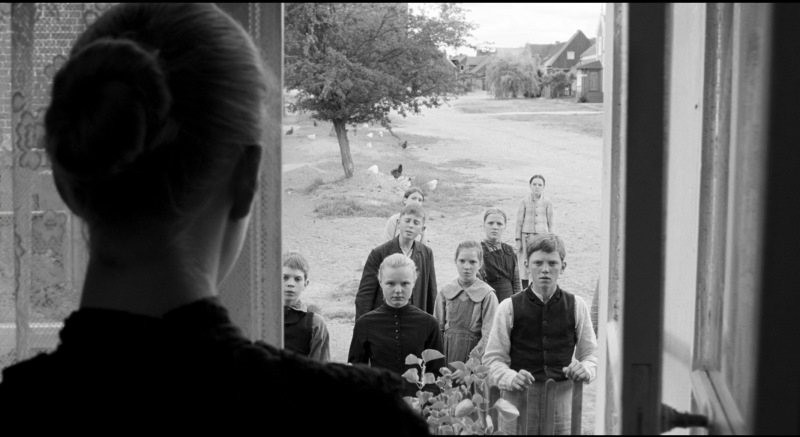
Funny Games (1997) may have gotten Michael Haneke in the door of international fame and may still be the most familiar fan-boy favorite, but the director had several, more profound, tricks up his sleeve. Though he has made only a handful of films since that time, all except for the Hollywood remake of Funny Games in 2007 have received rapturous receptions.
One of the most awarded (Palme D’Or and Academy nominations) and praised is this film in the form of a thriller which delves into the deeper nature of power and evil. The film is set, quite significantly in a small German town in roughly the year’s time leading up to World War I.
The little town (fictitious) is ruled, not very beneficently, by three authoritarian figures, the cold local minister (Burghart Klausbner), the doctor (Rainer Bock), who seems to have a God complex, and the baron (Ulrich Tukur), who takes everything he wants as his ancestral right.
The self-righteous minister gives the children an especially hard time and makes them wear white ribbons to show that they have all strayed from innocence and are inherently bad. All three men have situations in their lives they prefer to keep quiet but they can’t stop an escalating series of bad events which start to accumulate in the village.
The avalanche of evil remains disturbing and oblique and there is no tidy ending to comfort the viewer save that an even bigger evil comes along to make thoughts of the more grass level ones in the small hamlet look insignificant. (The story is told from the perspective of the local schoolteacher relating the events many years after the fact.)
Shot in stark black and white, the films conjures up memories of such excellent thrillers of the past as the similar Le Corbeau (1943). This and other films Haneke has created mark him as someone who may well be counted among the greats of his era when history has its say.
30. A Prophet (2009)
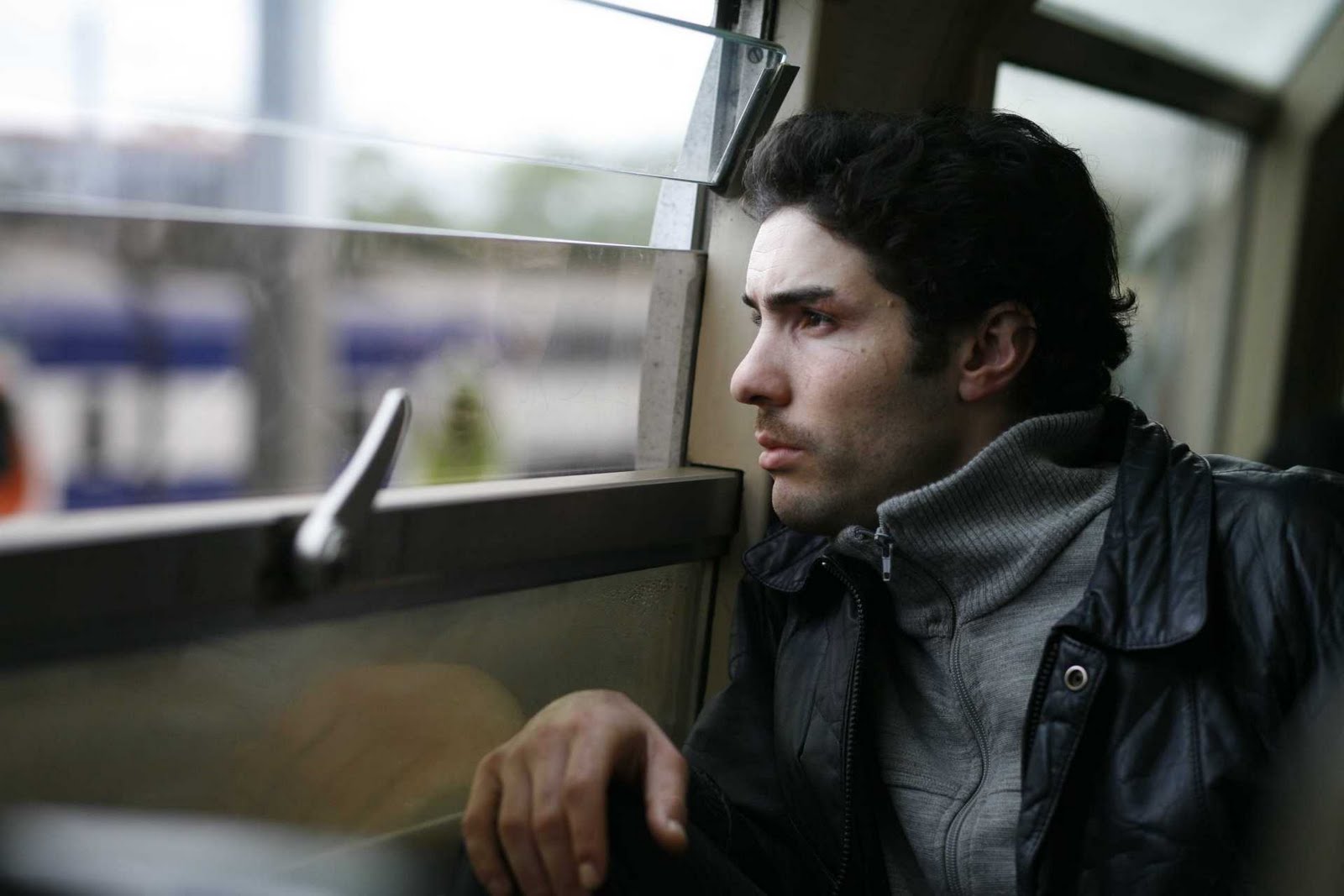
Another notable artist who broke into international fame in the first decade of the new century is France’s Jacques Audiard. Though he had been directing for some ten years (and screenwriting long before that) his much acclaimed film A Prophet put him on the world cinema map.
The title may sound religious but the picture is anything but a film of faith. Set largely inside the walls of a French prison the plot centers on a young French-Algerian man named Malik (Tahar Rahim), who has been sentenced for violence against policemen.
The prison is divided into the ethnic factions of the Corsicans and Muslims and, though Malik is Muslim by origin (he was raised with no perception of his roots) by necessity he falls under the control of a Corsican gang and its leader, the brutal Cesar (Niels Arestrup).
The gang uses him as a reviled servant but when he is allowed outside the prison on work release (which is also used by the gang) he begins to encounter other Muslims and begins to understand his heritage, leading to conflict in his treacherous lifestyle.
A Prophet is a very powerful statement about the plight of the more marginalized segments of French society, elements which have proven problematic to the country since they were imported as workers after World War II. Audriard, who had long been marked as a promising talent truly came into his own with this much acclaimed film (a critic’s choice winner at Cannes and an Academy Award nominee).
The two films he has made since have also been critical winners but neither quite hit the public nerve of this film, which remains his finest hour.
Author Bio: Woodson Hughes is a long-time librarian and an even longer time student/fan of film,cinema and movies. He has supervised and been publicist for three different film socieities over the years. He is married to the lovely Natalie Holden-Hughes, his eternal inspiration and wife of nearly four years.